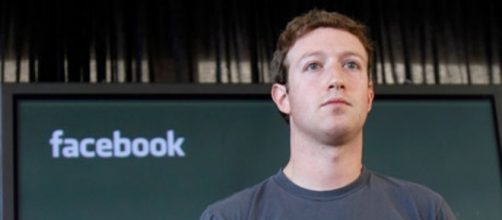Mark Zuckerberg is the subject of a major NY Times profile headlining the forthcoming weekend magazine. In it, The founder of Facebook and perhaps the principal leader among the heads of the internet giants today, acknowledges that there are dangers facing the cyber-revolution now in progress.
Thorns and snares
Because the internet is connecting anyone who desires to connect, it gets all sorts and conditions of people. And because we are a spectrum from the highest to the lowest impulses and thoughts, the web is a mirror of us all. It is a thorn in the side of those offended by what they read or see.
It is a snare to those who are tempted by everything from fandom to Click Bait.
Swampy campus
The Times article began last January, with a visit by author Farhad Manjoo to Mark Zuckerberg at MPK20, which is a structure at the center of the campus of Facebook. Majjoo describes it as a concrete-and-steel building with a nine-acre rooftop garden. The garden is said to be pristine but the interior is described as unfinished: ducts and beams and plywood walls and scribbles by contractors. The campus is located on a salty marsh next to a crowded highway in Menlo Park, CA.
How Facebook wrestles with dominance https://t.co/S06OBDcrV3
— Stephen C. Rose (@stephencrose) April 25, 2017
Axios recommends this read primarily as a tale of Facebook vanquishing click bait.
But as the article suggests, the unfinished aspect of the FB environment is a testament to a general understanding of things not being done yet, not finished. This impermanence, even changeability, is consistent with reality itself, a continual movement into what cannot be known in advance.
A jolt
The article more or less skips over Facebook history, its ascent to almost 2 billion users, perhaps a billion active, to get to the jolt of the last year. That jolt hit both Facebook and Twitter. It was the failure of almost all media to perceive the role of fake in the campaign of Donald Trump for president. It led President Obama to regret “an age where there’s so much active misinformation and it’s packaged very well and it looks the same when you see it on a Facebook page or you turn on your television.”
Idolizing popularity?
The article continues with a focus on the jolt of the Trump victory and the back and forth over fake news. Zuckerberg seems to come down on the side of his News Feed team which Manjoo says "aren’t making decisions that turn on fuzzy human ideas like ethics, judgment, intuition or seniority." They are they say data driven.
The data they get is dished out to FB users on the basis of popularity. That is what they determine we want to see and absorb. There is more to the article, but if this is the end of it, if ethics is seen as fuzzy matter and if they have such understanding of us, it can be assumed that Facebook's future is indeed unfinished.

